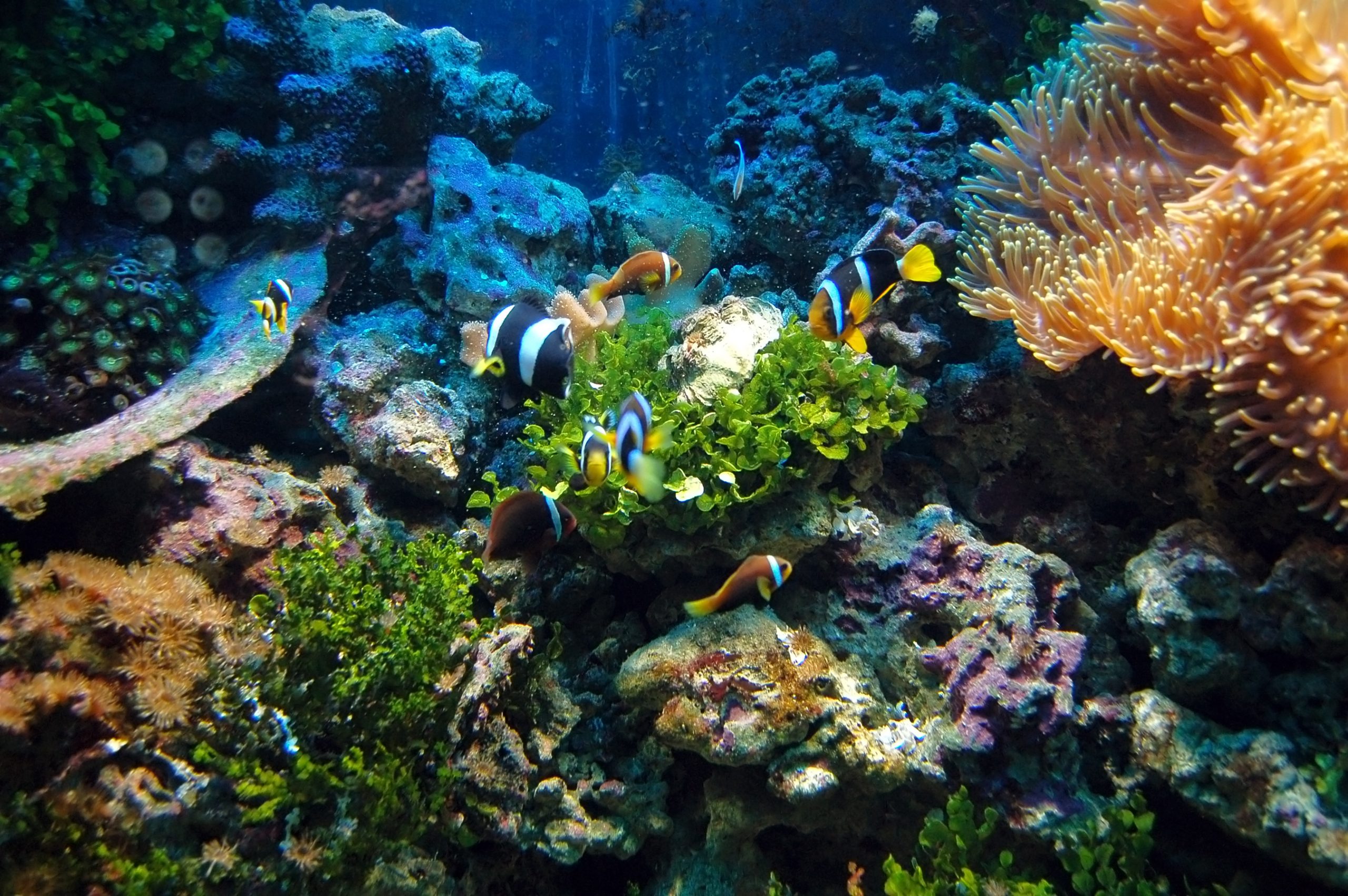The travel and tourism industry is one of the world’s largest employers and economic contributors, accounting for over 10 percent of total global employment and global gross domestic product in 2019[1]. The economies of islands and coastal areas are particularly dependent on travel and tourism, with the industry accounting for well over 50 percent of employment in nations such as Anguilla, Antigua and Barbuda, Aruba, St. Lucia and the Maldives[2]. Island nations also face significantly heightened risks associated with climate change, increasing the urgency of establishing sustainable economies in ocean regions.
The United Nations has highlighted the importance of the tourism industry’s contribution to the Sustainable Development Goals (SDGs) in SDG Target 14.7, which establishes the ambition to ‘increase the economic benefits to SIDS [small island developing states] and LDCs [least developed countries] from the sustainable use of marine resources, including through sustainable management of fisheries, aquaculture and tourism’ by 2030[3]. The travel and tourism industry has a particular opportunity to contribute to sustainable ocean economies by focusing efforts on areas such as local employment, sustainable and local sourcing, and sustainable operations.
Since its very early days, the guiding principle of Four Seasons Hotels and Resorts has been the Golden Rule: Treat others as you would like to be treated. For us, this includes treating all people and our planet with true care and consideration. Today our hotels, resorts and residences around the world embody this respect for the environment and our communities through our Environmental, Social and Governance program. For our resorts located on islands or in coastal and marine areas, these efforts are particularly engrained in our operations.
Local employment
Given many island nations’ particular reliance on tourism for economic development, local employment practices are a critical building block of sustainable tourism in marine and coastal regions. The hospitality industry has some of the highest potential for upward mobility of any industry in the world, with university degrees not required for most positions. Many hotel leaders started their careers as line-level staff, and the industry offers many career opportunities that are available to anyone and have the potential to positively transform local communities. The Four Seasons Resorts Maldives Hospitality Apprenticeship Program is a true embodiment of how the tourism industry can create life-changing opportunities. Since 2001, the resorts of Landaa Giraavaru and Kuda Huraa have helped an annual intake of Maldivian youngsters aged 17 to 20 to create empowered futures by gaining the experience required to pursue a career in the hospitality industry. A government-accredited Technical and Vocational Education and Training Apprenticeship Program since 2010, the year-long apprenticeship effort is a practical and theoretical scheme that concentrates vocational training in all aspects of hotel operations in an intense and collaborative environment, taught by hotel managers ‘on the job’ and in classrooms. Disciplines range from food and beverage preparation to engineering, housekeeping and safe maritime transportation, with every apprentice partnered with an on-site mentor for support and further transfer of skills. The Class of 2022 brings the total number of Four Seasons Resorts Maldives Hospitality graduates to more than 700, many of whom have gone on to successful careers not only with Four Seasons but in the broader Maldivian tourism industry. As a result of these efforts, over 50 percent of Four Seasons Resorts Maldives employees are local Maldivians.
Four Seasons is also proud to participate in the Sustainable Hospitality Alliance’s Youth Employment Programme, which seeks to upskill young people who have faced barriers, including people from low-income families, those living without parental care, survivors of human trafficking, refugees and people living with disabilities[4]. We are committed to scaling up our apprenticeship programming to other hotels across our portfolio, using the model established by the Maldives resorts and the tools developed through the Youth Employment Programme.
Sustainable and local sourcing
While hotels and resorts located in coastal and marine regions have a particular opportunity to contribute to and benefit from a sustainable ocean economy, the entire world is highly dependent on a healthy ocean for the critical role it plays in our global ecosystem, including regulating the climate and providing nourishment to people. Sourcing practices play an especially relevant role in responsible tourism, especially for islands where a high percentage of goods must be imported. By focusing on sustainable sourcing practices, such as sustainably harvested seafood or produce grown on-site, the tourism industry can reduce the environmental impact of our supply chains and contribute to supporting local economies.
Four Seasons Resort Bali at Sayan and Four Seasons Resort Bali at Jimbaran Bay embody this effort by prioritising local, organic, micro- and grassroots suppliers, developing relationships and supporting social cooperatives in the region. In the resorts’ Ocean to Table experience, guests can go out in Jimbaran Bay with a local fisherman to catch their lunch, and visit the historic fish market in the village to see how the property sources its seafood. This tour provides an extra revenue stream for the fishermen, who also run an activity at the resort’s Kids Club teaching little guests about Jimbaran’s fishing industry and how to throw a net. Both resorts source all fresh produce locally and grow over 25 varieties of vegetables, herbs, spices and fruit in their on-site gardens, which are used in cooking classes and ‘Zero Waste’ cocktail workshops. Four Seasons Resort Langkawi in Malaysia has its own traditional fish house that was designed by a local fisherman, crafted from island-grown wood and uses low-impact, generations-old fishing methods.
Four Seasons endeavours to enable each of our guests to experience the local culture of the location they are visiting. One of the most tangible ways this comes to life is through the sourcing of furniture, artwork and crafts from local artisans. Naviva®, Punta Mita, a Four Seasons Resort which is set to open in late 2022, will source almost 100 percent of the resort’s components from local Mexican artisans and furniture makers, with a focus on sustainable and natural materials. Through this commitment, the resort will provide significant support to the local community, creating opportunities that extend well beyond the boundaries of the property.
Sustainable operations
Four Seasons is committed to embedding sustainability practices throughout our global operations, and our properties around the world are taking significant steps to reduce carbon emissions, energy and water consumption, and waste production. Single-use plastics pose a particularly significant threat to our beautiful marine ecosystems. That is why over the past several years, Four Seasons has focused on identifying sources of disposable plastic and implementing alternatives that reduce our environmental footprint while delivering an elevated guest experience. All of our hotels are currently eliminating single-use plastics from the guest experience, including replacing plastic water bottles and in-room amenities with sustainable alternatives. We are especially focused on expediting plastics reduction and improving waste management practices in coastal regions and locations where plastic leakages pose a significant threat to local marine environments. Resorts including Four Seasons Resort The Nam Hai in Vietnam, Four Seasons Resort Langkawi in Malaysia, Four Seasons Resort Hualālai in Hawai‘i, and Four Seasons Hotel at the Surf Club in Surfside, Florida, have all implemented zero-waste, on-site water-bottling plants that will eliminate thousands of plastic bottles per year.
In addition to our commitment to eliminate single-use plastics, each hotel is held accountable to annual reduction targets for carbon emissions, energy, water and waste. These targets are implemented through our global sustainability management system, and each property’s progress towards these goals is tracked and reported to leadership on a quarterly basis. We are in the process of using our environmental baseline data to establish ambitious, long-term global goals that will align with the SDGs. Sustainable sources of energy are a particular challenge for island nations, where resorts are often required to generate their own power on-site. Properties such as Four Seasons Resort Bora Bora and Four Seasons Resort Seychelles at Desroches Island use solar photovoltaic systems to generate clean power that reduces the need for diesel generators. In addition to reducing the hotel’s carbon emissions, these efforts help to reduce pollution for all island inhabitants.
We are also focused on engaging our guests in our sustainability efforts. Four Seasons Resorts in the Maldives have on-site marine biologist teams who educate and involve guests in their conservation projects, including manta ray research in association with the Manta Trust[5], sea turtle rehabilitation and coral restoration. In 2000, Four Seasons Resort Maldives at Kuda Huraa began a pioneering partnership with Reefscapers to protect and regrow coral in the Maldives[6]. Through the Four Seasons Reefscapers project, Four Seasons Resorts Maldives at Kuda Huraa and Landaa Giraavaru have contributed to regrowing more than 500,000 pieces of 40 species of coral, transplanted onto 7,000 coral frames. The project is one of the most successful coral replanting efforts in the world, featuring the Indian Ocean’s largest mass of artificial reefs. Four Seasons guests can help transplant the coral onto frames built by a cooperative that employs local islanders, and then watch their reef grow via photo updates on the Marine Savers website. Other hotels around the world are also implementing similarly impactful projects that engage guests in biodiversity preservation and conservation, such as the ‘Coral Gardening Experience’ at Four Seasons Resort Costa Rica at Peninsula Papagayo, sea turtle conservation programs at Four Seasons Resort Punta Mita, Mexico, and Four Seasons Resort Nevis, and ocean conservation education through the Alaka‘i Nalu and Kumu Kai Marine Education Center at Four Seasons Resort Hualālai, Hawai‘i.
Coastal and marine destinations have an abundance of opportunities to engage guests in sustainability, through simple actions such as beach clean-ups, highlighting responsibly sourced menu items and educational programming. Through these types of guest engagement efforts, the tourism industry can create a ripple effect that will continue to resonate and create even more positive impact even after visitors return home.
Conclusion
While the pandemic resulted in undeniable challenges for the industry, as borders reopen globally the tourism industry has the opportunity to build back more sustainably, particularly in coastal and marine locations where proper preservation and protection of our ocean is most critical to the success of both the tourism industry and the planet. Through a focus on local employment, sustainable and local sourcing, and sustainable operations, the coastal and marine tourism industry can lay the foundations for a sustainable ocean economy, creating a positive impact while building a more prosperous and resilient future for people and our planet.
—–
[1] For percentage, see World Travel and Tourism Council, Travel and Tourism: Global Economic Impact and Trends 2020, June 2020, https://wttc.org/Portals/0/Documents/Reports/2020/Global%20Economic%20Impact%20Trends%202020.pdf?ver=2021-02-25-183118-360.
[2] R. Hutt, “These Are the Places That Rely Most on Tourism for Jobs,” World Economic Forum, 27 August 2020, https://www.weforum.org/agenda/2020/08/destinations-rely-most-on-tourism-travel/.
[3] UN Sustainable Development Goals, 14
Conserve and sustainably use the oceans, seas and marine resources for sustainable development, https://sdgs.un.org/goals/goal14
[4] Sustainable Hospitality Alliance, “Youth Employment Programme,” 2021, https://sustainablehospitalityalliance.org/our-work/youth-employment/youth-employment-programme/.
[5] Manta Trust, “Conservation through Research, Education and Collaboration,” https://www.mantatrust.org/.
[6] Reefscapers, home page, https://reefscapers.com/.


 Previous
Previous



